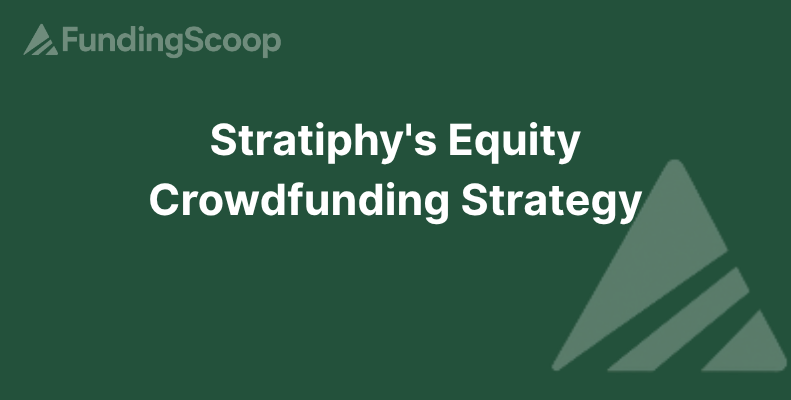
Stratiphy's Equity Crowdfunding Strategy
Marcus Ashford
Stratiphy launched a crowdfunding campaign on Crowdcube in October to democratize wealth management using innovative technology, aligning with the growing trend of equity crowdfunding in the UK. This approach leverages AI to provide personalized, sustainable investment strategies, appealing to investors seeking responsible finance management.
In October, Stratiphy launched its latest crowdfunding campaign on Crowdcube, aiming to democratise wealth management through innovative technology. By choosing equity crowdfunding, an increasingly popular financing method in 2023, Stratiphy is strategically positioning itself to attract new investors eager to engage with sustainable investment opportunities.
Equity crowdfunding allows businesses like Stratiphy to raise funds from the public in return for equity in the company. Platforms such as Crowdcube enable this process, facilitating a meeting ground for startups and everyday investors.
The UK Crowdfunding Landscape
The UK has become a fertile ground for equity crowdfunding, driven by the growth of fintech and increasing consumer appetite for accessible investment opportunities. Stratiphy's move reflects this trend, leveraging the platform's AI-driven capabilities to offer personalised investment strategies. The approach is not just innovative but resonates with a growing demand for responsible and sustainable finance management.
According to a recent report on crowdfunding from BBC, many UK-based platforms have experienced significant growth, enabling a wider array of businesses to gain vital capital support.
My Take
Having covered the UK lending and investment landscape for nearly two decades, I see Stratiphy's decision as a forward-thinking manoeuvre. The use of Crowdcube not only provides access to a vast pool of potential investors but also aligns with broader market behaviours favouring digital financial innovations. Furthermore, the ability to merge AI with investment offers a dual advantage of efficient strategy management and robust investor engagement. While challenges like market volatility persist, the integration of technology within investment processes may well define the next decade of wealth management.


